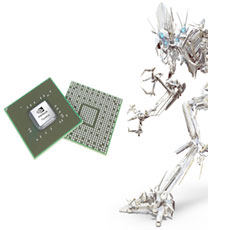Computer Post & Beep Codes

Energy on self test POST is usually a process performed by firmware or software routines quickly just after a lot of digital electronic devices are powered on, perhaps by far the most widely known usage pertains to computing devices personal computer systems, PDAs, networking devices including routers, switches, intrusion detection systems along with other monitoring devices, other devices include things like kitchen appliances, avionics, medical equipment, laboratory test equipment all embedded devices, the routines are part of a device’s pre boot sequence, as soon as POST completes successfully, bootstrap loader code is invoked. POST includes routines to set an initial value for internal and output signals and to execute internal tests, as determined by the device manufacturer, these initial conditions are also known as the device’s state, they may be stored in firmware or incorporated as hardware, either as part of the design itself, or they may be part of semiconductor substrate either by virtue of being part of a device mask, or immediately after becoming burned into a device such as a programmable logic array PLA.
Test benefits may possibly either be displayed on a panel that is definitely part of the device, or output by way of bus to an external device, they might also be stored internally, or may well exist only till the subsequent power down, in some situations, like in aircraft and automobiles, only the truth that a failure occurred can be displayed either visibly or to an on board computer system but may perhaps also upload detail concerning the failures when a diagnostic tool is connected. POST protects the bootstrapped code from getting interrupted by faulty hardware. Diagnostic details offered by a device, for example when connected to an engine analyzer, will depend on the correct function on the device’s internal elements. In these cases, when the device is not capable of giving accurate details which guarantees that the device is safe to run subsequent code for example bootstrapping code may not be permitted to run.
The principal duties on the principal BIOS for the duration of POST are as follows:
- Verify CPU registers
- Verify the integrity of your BIOS code itself
- Verify some standard components like DMA, timer, interrupt controller
- Find, size, and verify method principal memory
- Initialize BIOS
- Pass manage to other specialized BIOSes if and when essential
- Identify, organize, and choose which devices are obtainable for booting
- Discover, initialize, and catalog all system buses and devices
- Provide a user interface for system’s configuration
- Construct whatever technique atmosphere is needed by the target operating program
The BIOS starts its POST when the CPU is reset, the first memory place the CPU tries to execute is known as the reset vector, inside the case of a difficult reboot, the north bridge will direct this code fetch request for the BIOS situated around the technique flash memory, for any warm boot, the BIOS will probably be located in the appropriate place in RAM and also the north bridge will direct the reset vector contact for the RAM. In earlier Computer systems, prior to chipsets have been common, the BIOS ROM could be located at an address range that integrated the reset vector, and BIOS ran directly out of ROM. This is the reason the motherboard BIOS ROM is in segment F000 inside the conventional memory map, through the POST flow of a contemporary BIOS, one of many 1st issues a BIOS should really do is decide the reason it truly is executing. For any cold boot, by way of example, it might need to have to execute all of its functionality. If, on the other hand, the system supports power saving or fast boot solutions, the BIOS may very well be capable to circumvent the regular POST device discovery, and just plan the devices from a preloaded system device table.
The POST flow for the Pc has developed from a very very simple, simple approach to a single that is definitely complex and convoluted. For the duration of POST, the BIOS will have to integrate a plethora of competing, evolving, and also mutually exclusive requirements and initiatives for the matrix of hardware and OSes the Pc is expected to support, while at most only straightforward memory tests and also the setup screen are displayed, in earlier BIOSes, as much as about the turn from the millennium, the POST would perform a thorough test of all devices, which includes a complete memory test, this style by IBM was modeled following their larger systems, which would execute a comprehensive hardware test as a part of their cold begin course of action, as the Pc platform evolved into extra of a commodity customer device, the mainframe and minicomputer inspired higher reliability functions which include parity memory and also the thorough memory test in just about every POST had been dropped from most models.
 Steven, L.
Steven, L.










